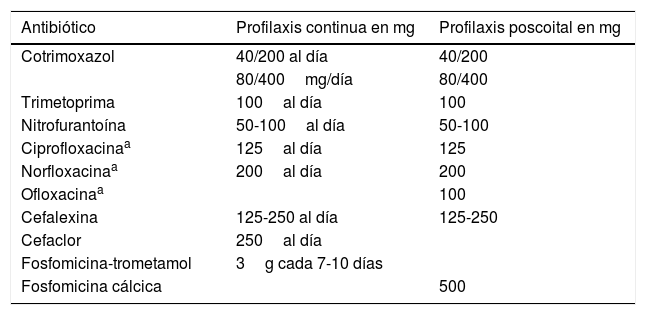Las infecciones urinarias son muy prevalentes entre las mujeres y cuando son recurrentes conllevan malestar a las pacientes, un elevado coste sanitario y representan una de las causas más frecuentes de uso de antibióticos. Para prevenirlas existen varias opciones que incluyen tanto tratamientos antibióticos (profilaxis antibiótica continua o poscoital) como medidas no antibióticas (medidas higiénicas, vitamina D, arándanos, D-manosa, probióticos, estrógenos, vacunas, instilaciones intravesicales), pero con diferente nivel de evidencia y, a veces, de mala calidad, por lo que se necesitan nuevos estudios aleatorizados y comparativos que permitan diseñar la mejor estrategia de prevención.
Urinary tract infections are highly prevalent among women and when they are recurrent they can lead to patient discomfort and high healthcare costs, and they represent one of the most frequent causes of antibiotic consumption. There are several options to prevent RUTI which include both antibiotic treatment (continuous or postcoital antibiotic prophylaxis) and non-antibiotic measures (hygienic measures, vitamin D, blueberries, D-mannose, probiotics, oestrogens, vaccines, intravesical instillations), but with different levels of evidence, sometimes of poor quality, and therefore new randomized and comparative studies are needed to choose the best strategy.
Artículo
Comprando el artículo el PDF del mismo podrá ser descargado
Precio 19,34 €
Comprar ahora










